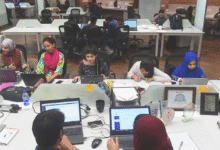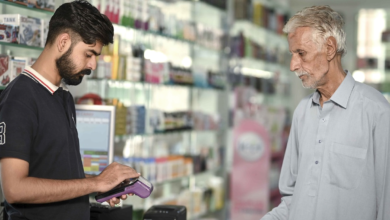
Pakistani Startups ecosystem is undergoing a remarkable transformation, with top 5 Pakistani startups disrupting the tech industry in 2025 through groundbreaking innovations. These homegrown ventures are not only solving local challenges but also making waves on the global stage, attracting significant investments and partnerships. From revolutionizing digital payments to transforming healthcare access, these Pakistani Startups are leveraging cutting-edge technologies like AI, blockchain, and IoT to create scalable solutions. Their success stories highlight Pakistani Startups untapped potential as an emerging tech hub, challenging traditional industries and setting new benchmarks for innovation.
As we enter 2025, these Pakistani Startups are accelerating Pakistan’s digital economy while addressing critical gaps in financial inclusion, education, healthcare, and logistics. What makes them truly disruptive is their ability to combine local market understanding with world-class technology, creating models that are now being replicated in other developing markets. This Pakistani Startups explores how these five trailblazing companies are reshaping industries, creating jobs, and putting Pakistan firmly on the global tech map. Their journeys offer valuable insights into how emerging markets can leapfrog traditional development pathways through technology-led innovation.
Top 5 Pakistani Startups Disrupting the Tech Industry in 2025
Airlift
Airlift, once a grocery delivery platform, has pivoted to become a leader in smart urban mobility. In 2025, the company is transforming public transportation with AI-driven ride-sharing and electric vehicle (EV) solutions. By integrating real-time traffic data and optimizing routes, Airlift reduces commute times and carbon emissions in major cities like Karachi, Lahore, and Islamabad. The startup’s subscription-based model allows users to access affordable, eco-friendly transport, making it a preferred choice for daily commuters.
Tajir
Tajir has emerged as a game-changer in Pakistan’s retail sector by digitizing the traditional supply chain. The B2B marketplace connects retailers directly with wholesalers and manufacturers, eliminating middlemen and reducing costs. In 2025, Tajir’s AI-powered inventory management system helps small store owners predict demand, optimize stock levels, and access competitive pricing. The startup’s success lies in its deep understanding of Pakistan’s informal retail economy, which accounts for over 90% of consumer purchases. By offering embedded financing and logistics support, Tajir empowers retailers to scale efficiently.
MedIQ
MedIQ is at the forefront of Pakistani Startups healthtech revolution, offering AI-driven diagnostics and telemedicine services. In 2025, the platform provides instant medical consultations, remote patient monitoring, and predictive analytics for disease prevention. By partnering with hospitals and clinics, MedIQ ensures affordable and accessible healthcare for underserved populations. One of MedIQ’s standout innovations is its AI-powered symptom checker, which reduces misdiagnosis rates and streamlines treatment plans. The Pakistani Startups has also introduced wearable devices that track vital signs and alert doctors in emergencies.
CreditBook
Digitizing Pakistan’s Cash-Based SME Economy
CreditBook is revolutionizing financial management for Pakistan’s small merchants and shopkeepers by replacing traditional paper ledgers with a secure digital platform. In a country where over 90% of retail transactions are cash-based, the app provides an easy way to track sales, purchases, and customer credit reducing errors and fraud while bringing transparency to informal businesses.
AI-Powered Bookkeeping for Small Businesses
The app uses smart algorithms to automate expense tracking, generate invoices, and analyze cash flow patterns. Even shop owners with minimal financial literacy can use CreditBook’s intuitive interface to manage daily transactions, send payment reminders, and forecast earnings. This empowers small businesses to make data driven decisions without relying on accountants.
Embedded Financing & Microloans for Growth
CreditBook partners with banks and fintech lenders to offer instant working capital loans to merchants based on their transaction history. By analyzing real-time sales data, the platform enables credit scoring for shopkeepers who previously had no access to formal financing. This bridges Pakistan’s $40 billion SME credit gap and fuels business expansion.
Reducing Reliance on Cash Through Digital Payments
The app integrates with Pakistan’s leading payment systems (JazzCash, EasyPaisa, and bank transfers), allowing businesses to accept and record digital payments seamlessly. This shift toward a documented economy helps merchants build financial identities, qualify for loans, and transition away from risky cash-only operations.
Expansion into Rural & Underserved Markets
CreditBook’s lightweight app works even in low-connectivity areas, making it ideal for rural retailers. Partnerships with telecom providers have enabled free data bundles for users, driving adoption among small-town kiryana stores, vegetable vendors, and cottage industries. Over 1.2 million businesses now use the platform, with 60% coming from outside major cities.
Blockchain & Cross-Border Commerce
CreditBook is piloting blockchain-based smart contracts to facilitate trustless trade credit between suppliers and retailers. Future plans include cross-border B2B payment solutions for Pakistani exporters and integrations with global fintech platforms like Stripe and Wise.
EduFi
Addressing Pakistan’s Education Crisis with Technology
EduFi is tackling Pakistan’s longstanding education challenges by leveraging cutting-edge EdTech solutions. With millions of children out of school and a shortage of qualified teachers, the startup provides an Artificial intelligence powered learning platform that makes education accessible, affordable, and engaging. By integrating digital classrooms, interactive content, and personalized learning tools, EduFi ensures that students in both urban and rural areas receive quality education.
AI-Driven Personalized Learning for Better Outcomes
One of EduFi’s standout features is its adaptive learning technology, which tailors lessons to each student’s pace and comprehension level. Using machine learning algorithms, the platform analyzes performance data to recommend customized study plans, improving retention and academic performance. This approach helps bridge learning gaps, particularly for students in underprivileged regions where traditional schooling systems are inadequate.
Virtual Classrooms and Remote Learning Accessibility
EduFi’s virtual classroom feature enables real-time interaction between teachers and students, breaking geographical barriers. With live lectures, recorded sessions, and collaborative tools, the platform ensures uninterrupted learning even in areas with poor infrastructure. Additionally, EduFi partners with telecom providers to offer low-data-usage solutions, making online education feasible for low-income families.
Gamification and Engagement for Enhanced Learning
To combat low student engagement, EduFi incorporates gamified learning modules, quizzes, and interactive exercises. By turning education into an immersive experience, the platform keeps students motivated and improves knowledge retention. Teachers also benefit from performance analytics, allowing them to identify struggling students and adjust their teaching methods accordingly.
Government and Institutional Collaborations for Scalability
EduFi has partnered with Pakistan’s federal and provincial education departments to integrate its platform into public schools. Additionally, collaborations with international NGOs and investors have enabled rapid expansion into other developing countries facing similar education gaps. With plans to introduce AR/VR-based learning in the near future, EduFi is set to revolutionize education on a global scale.
Expanding Beyond Borders
EduFi aims to become a leading EdTech player not just in Pakistan but across South Asia and Africa. By continuously innovating with AI, blockchain-based certification, and multilingual content, the startup is poised to democratize education for millions. Its success highlights how technology can transform traditional systems and create opportunities for underserved communities.
Read More: Wearable Tech Trends Taking Over the U.S. in 2025
Conclusion
The rise of these top 5 Pakistani startups disrupting the tech industry in 2025 underscores the country’s potential as a global innovation hub. From mobility and retail to healthcare, finance, and education, these companies are tackling critical challenges with technology-driven solutions. Their success not only boosts Pakistan’s economy but also inspires a new generation of entrepreneurs.
As these Pakistani Startups continue to expand internationally, they highlight the untapped talent and creativity within Pakistan’s tech ecosystem. With increasing investor confidence and government initiatives supporting digital transformation, the future looks promising for Pakistani Startups landscape. The world is taking notice, and these startups are leading the charge in shaping a tech-enabled future.
FAQs
Which Pakistani Startups is leading in fintech in 2025?
CreditBook is at the forefront of Pakistani Startups fintech revolution, offering digital ledger solutions and microloans for SMEs.
How is Airlift transforming transportation?
Airlift uses AI-driven ride-sharing and electric vehicles to optimize urban mobility, reducing commute times and emissions.
What makes Tajir unique in Pakistan’s retail sector?
Tajir digitizes the supply chain, connecting retailers directly with wholesalers using AI-powered inventory management.
How does MedIQ improve healthcare access?
MedIQ provides AI diagnostics, telemedicine, and wearable devices to make healthcare affordable and accessible.
What is EduFi’s impact on education in Pakistan?
EduFi offers personalized, AI-driven learning solutions, bridging the education gap in underserved areas.












One Comment